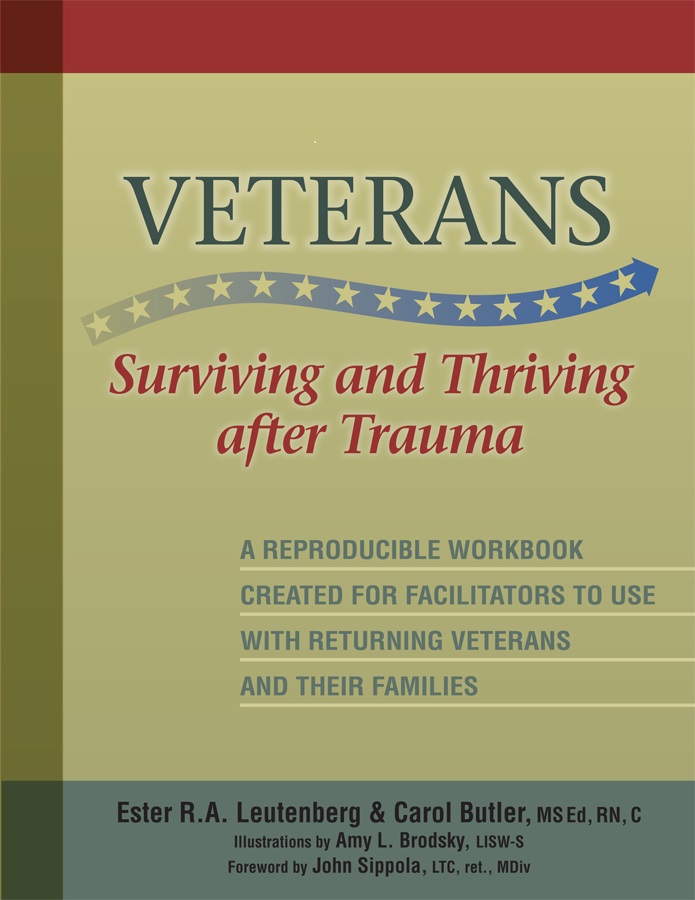Whole Person Associates would like to thank all those veterans who have served or are currently serving our country and all those who waited and welcomed them home. They are all heroes. “A hero is an ordinary individual who finds the strength to persevere and endure in spite of overwhelming obstacles.” ~ Christopher Reeve. The information that follows is excerpted from Veterans, Surviving and Thriving Trauma by Ester Leutenberg and Carol Butler, MS Ed, RN, C.
The veterans we work with often are hampered in their transition by visible and invisible wounds. The folks they love may have changed. They have changed. These changes can be drastic. Rejoining the family they left, stress, anger, depression, guilt, grief, substance abuse, and other issues will impact their relationships. They might need help to reconnect.
Fortunately, the bravery and resilience that sustained them during their service can help them now as they work to survive and thrive. Professionals can help them find and use the tools they need to successfully become part of civilian life again. With guidance they can learn what they need to fight their current battles. They can learn to tap into internal strengths and external resources. They can learn that receiving help is not a sign of weakness, but one of strength.
Working with veterans presents a different set of issues for the clinician. Our vets need guidance through the tumult of joy, grief, and unexpected feelings that arise as they reintegrate into a peacetime society. They need a place that feels safe to discuss their deepest feelings. They need to know they are not being judged. They need to know there are solutions.
Here is a list of some of the events and feelings returning vets might need to process.
- I am appreciated for my patriotism.
- People recognize my new skills, maturity, and other attributes.
- I am a positive role model for my children.
- My family bonds are strengthened.
- My flexibility and adaptation to change benefit myself and others.
- I am able to re-negotiate rules and roles better after I have been home a while.
- I re-evaluate my relationship, and its goals, and the direction it will take.
- I am grateful I am a survivor.
- I feel a roller-coaster of emotions.
- I will never be the same.
- People do not understand what I have been through and how I have changed.
- I question whether people will accept the new me.
- I need time and space and resent probing questions by well-meaning people.
- My homecoming is not what I expected.
- My reception seemed lukewarm.
- It is difficult to re-connect with my partner emotionally or physically.
- My transition from being single to a couple is difficult.
- My relationship and roles are changing because my partner and I have changed.
- I am engaged in power struggles.
- I encounter resistance as I try to resume my prior authority or role.
- My parents still treat me like a child.
- My children may remain detached because they fear another separation.
- The kids fear my discipline; my partner warned, “Just wait until daddy or mommy gets home!”
- Teens rebel against my rules and expectations.
- I expect schedules and regimentation; my family is undisciplined; my home disorganized.
- I miss contact with veterans who have been there and done that.
- My partner does not understand my need to stay connected with buddies.I feel survivor’s guilt because I lived and some of my buddies died.
- I dislike the whirlwind of welcoming activities.
- I think it is too soon for household chores, school, or work; but feel the pressure.
- I find it hard to do my old job.
- I cannot get work; employers do not value my skills.
- I am the supposed hero, but others want credit for responsibilities handled at home or work.
- I am concerned about future or multiple deployments.
Veterans deal with an extraordinary amount of stress when they return to their families. They don’t always have the skills they need to keep their head above water. Follow this link to Coping and Calming: A to Z, an excellent set of worksheets, including a facilitators page. These also come from Veterans: Surviving and Thriving Trauma by Ester Leutenberg and Carol Butler, MS Ed, RN, C

